Sleep
Latest

Fitbit's Charge 4 can wake you up when you feel well-rested
Fitbit has updated the Charge 4 to add smart wake-up alarms and clever use of your phone's GPS.
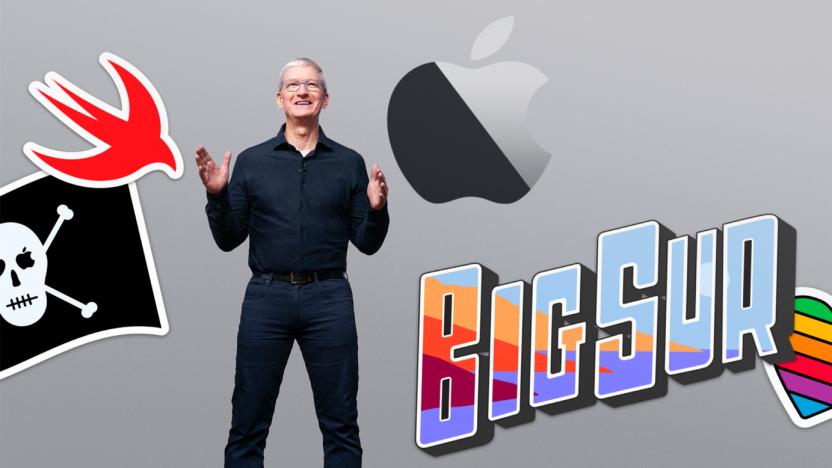
Here's everything Apple announced at its WWDC 2020 keynote
Here's everything you need to know from Apple's Worldwide Developer Conference today.

Headspace is offering free mindfulness courses to unemployed Americans
Mindfulness app Headspace is offering a free one-year subscription to anyone in the US who is unemployed.

Wyze's Alexa-equipped fitness tracker costs $25
Smart home security company Wyze announced last month its plans to launch an Alexa-supported fitness tracker, among other products. Now, the wearable -- simply called the Wyze Band -- has arrived, and is available now as part of an early access launch, and to the general public from April.
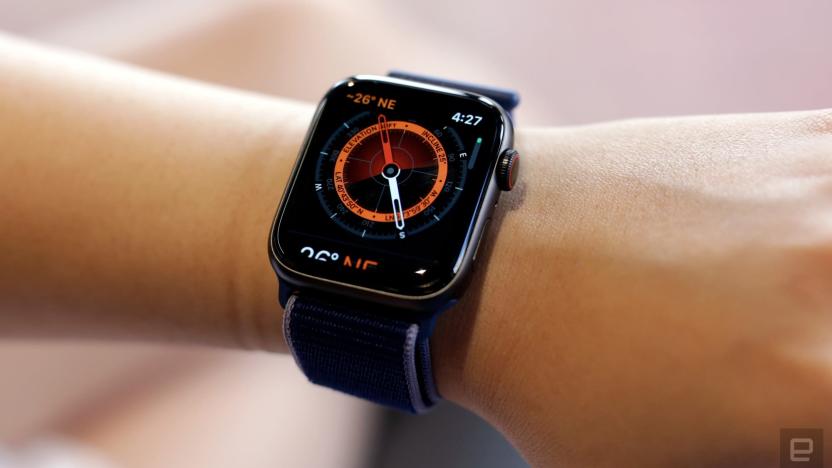
Apple Watch may get a kids mode and sleep tracking
Apple seems to be hard at work on new features for its wearable. Yesterday, news broke that the company is planning on integrating a feature that will detect low blood oxygen levels in a user, which could help prevent heart and lung complications. Further leaks obtained by 9to5Mac show that Apple could soon introduce a way for parents to use their iPhones to set usage limitations on their kids' Watches, as well as some frequently-requested sleep tracking features.

Muse's new meditation headband is designed to help you sleep
Muse first launched its brain-sensing headband back in 2013. Designed to take the guesswork out of meditation by providing real-time feedback on your brain and body's activity, the device has seen a couple of iterations over the years, and now its back with a completely new form factor. Gone are the rubbery cushions and external metal components -- the whole thing is now covered in a plush, breathable fabric and has been designed to fit better and more comfortably on a wider variety of head sizes.
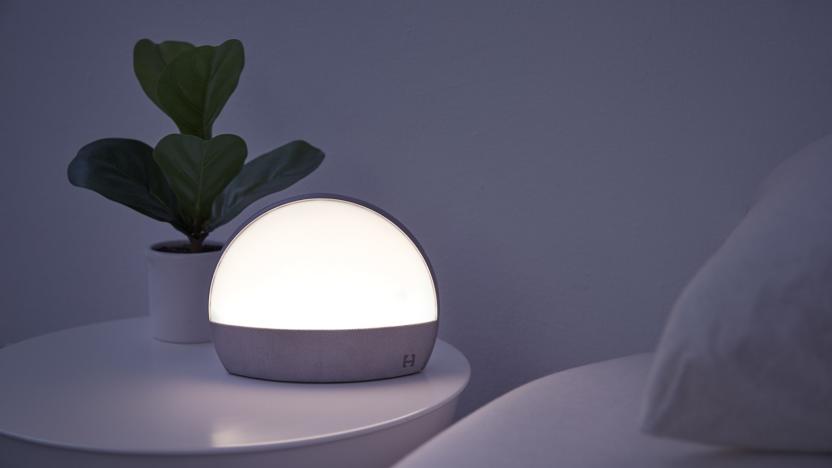
Hatch made a smart sleep light to help adults rest better
Hatch, which is perhaps best known for its baby-focused products, is turning its attention to grown-ups. It made a smart sleep light called Restore, with the aim of helping people drift off more easily and get a better night's rest.

Sleep Number’s Climate360 bed adjusts to suit your body temperature
Many people get plenty of sleep, but still don't feel fully rested. And there are always companies looking fix our sleeping woes. Sleep Number's mattresses have focused on providing the ideal level of firmness for a specific person's sleep style to remedy this, but the company's newest product will take things a step further. The forthcoming Climate360 mattress will use "microclimates" to apparently reduce how often you wake up during the night by keeping your body at the right temperature. With both heating and cooling functions, the mattresses will automatically adjust your body temperature according to sleep cycles for deeper rest.

Spotify’s Sleep Timer is coming to the iPhone today
Starting today, iOS users can fall asleep to their Spotify playlists without having their rest disturbed later. Spotify Sleep Timer -- which has been available on the Android version of the app since May -- lets you select a countdown timer between five minutes and an hour. After the time has elapsed, the audio fades out so that "Pure Moods" isn't playing all night.

Alexa can use smart lights to wake you or lull you to sleep
It's getting a bit easier to fall asleep or wake up in sync with your lights -- if you have an Alexa-powered device. Amazon has introduced a trio of Alexa options that can gradually adjust smart lights to suit your daily habits. Wake-up lighting brightens the bulbs grouped with your Alexa device when you tell the voice assistant to set an alarm "with lights." You can add lights to sleep timers if you want them to gradually dim as you call it a night. And if you want Alexa to gradually change lighting as part of a larger action, you can add brightening or dimming bulbs to routines -- say, a morning routine that plays the news and ramps up the lights as you struggle to get out of bed.
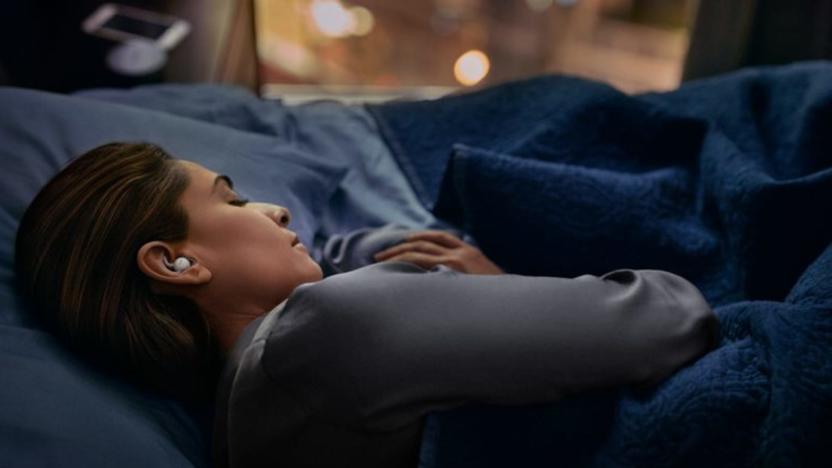
Bose discontinues its Sleepbuds due to battery issues
Bose is discontinuing the Sleepbuds it designed to mask noise and help people get a better night's rest. In an email to customers, it cites various battery issues as the reason. While Bose is honoring the warranty on the $249 wearables, it's allowing everyone who bought Sleepbuds to return them by the end of the year for a full refund.
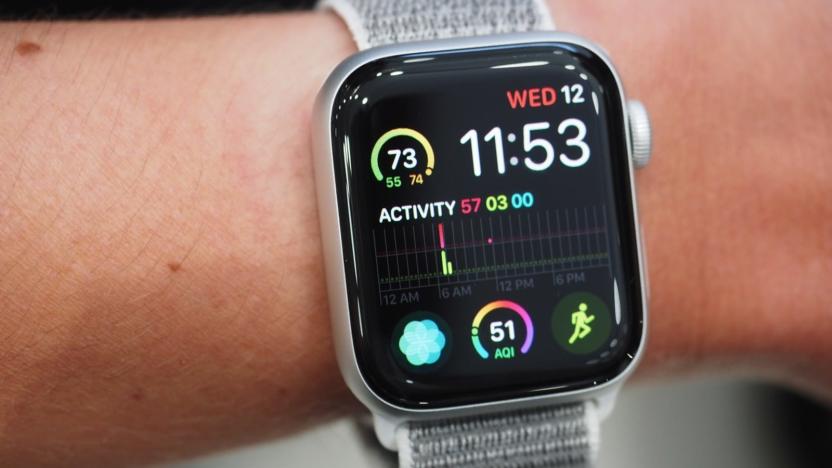
Apple Watch may get sleep tracking as soon as next week
The Apple Watch might include sleep tracking sooner than you think. Sources talking to 9to5Mac claim to have significant details as to how the health feature will work, with word that it might be announced "as early as next week" at the September 10th event. Some details aren't surprising, but they suggest this isn't just a throwaway addition.
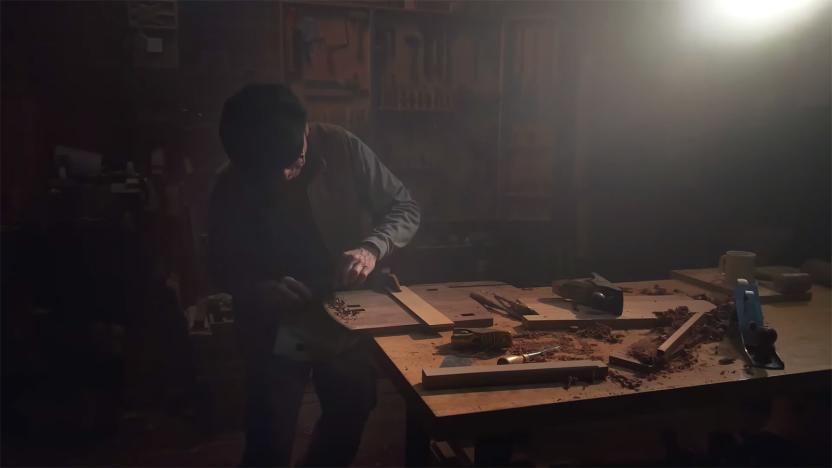
Apple (gently) taps ASMR fans with its latest iPhone ads
Apple wants to show that it's hip to what the kids are watching, and that apparently includes latching on to one of YouTube's biggest trends: ASMR videos. The company has posted a series of iPhone-captured "Apple ASMR" clips from director Anson Fogel that aim to deliver relaxing tingles. There are only four so far, but Apple was clearly taking notes when it looked at YouTube's suggestions -- it even uses familiar video titles. You can fall asleep to rain during a camping trip, scratch that mental itch with hiking trail crunches, set your mind alight with whispers or listen to satisfying wood carving sounds. About the only complaint is that they're relatively short next to the half-hour-plus videos you often see elsewhere.

Google Fit now tracks your sleep patterns
Google Fit should now be that much more helpful when you're ramping down for the night. The fitness app now tracks sleep patterns from apps that share their data, giving you better sense of whether or not you need more shut-eye. You can add to and edit your sleep history if companion apps aren't providing a complete picture of your downtime. Accordingly, there's a new dark theme (in keeping with Google's recent trends) that should be kinder to your eyes at night.
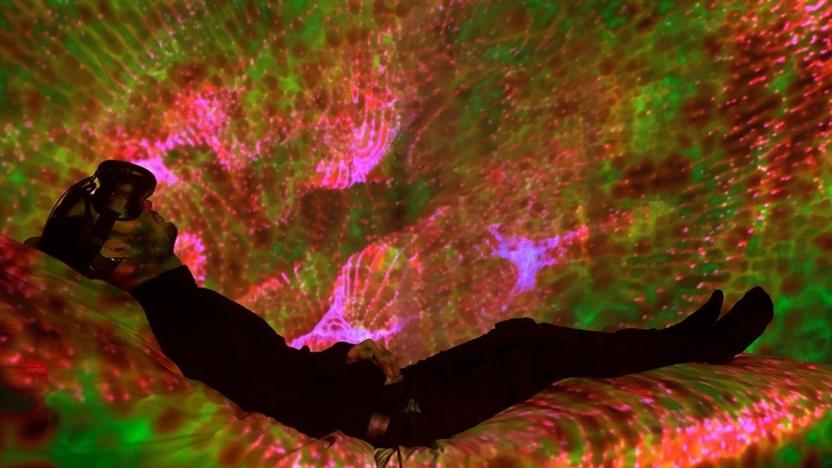
Brain-controlled VR lightshows could lull you to sleep
By most accounts, technology wreaks havoc on our sleep. Even tools meant to help us sleep better can make insomnia worse. But sleep and tech don't have to be mutually exclusive. Artists and researchers from Royal Melbourne Institute of Technology (RMIT) University have created a virtual reality tool to induce sleep. The device, Inter-Dream, combines ambient music controlled by artists with kaleidoscopic visuals controlled by the user's brainwaves, via EEG.
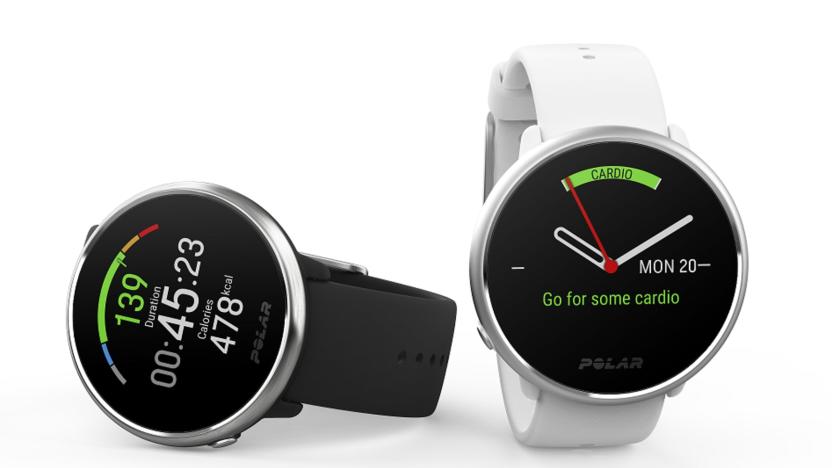
Polar's latest watch knows if you're too tired for a full workout
Sleep tracking and personal fitness gadgets are nothing new, and even the cheapest knock-off wearables will do a decent enough job of monitoring the main criteria, so companies are constantly looking at ways to make their devices even more useful. Polar's latest watch, Polar Ignite, does exactly that by combining comprehensive sleep data with personalized training, helping wearers achieve optimal workouts.
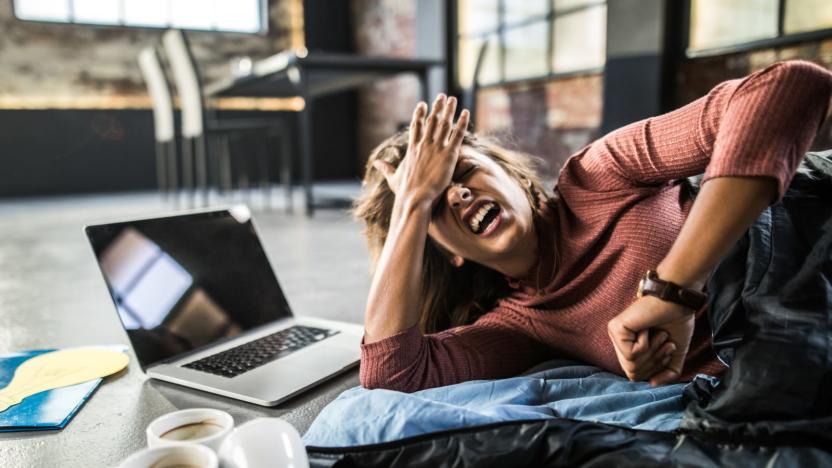
My DNA test confirmed it: I’m not a morning person
There's a coded judgment that people who do well in the mornings hold against those of us who do not. "You're just not a morning person," they say, the words dripping with the implication that our sluggishness in the AM is a result of slovenliness. It's the same subtext you see held against fat people, as overweight bodies are viewed as the result of some moral failing. Thankfully, I have in my hand a piece of paper -- well, on my computer, a PDF -- to refute those biases. I'm not a morning person because I'm lazy, but because it's coded into my genes.
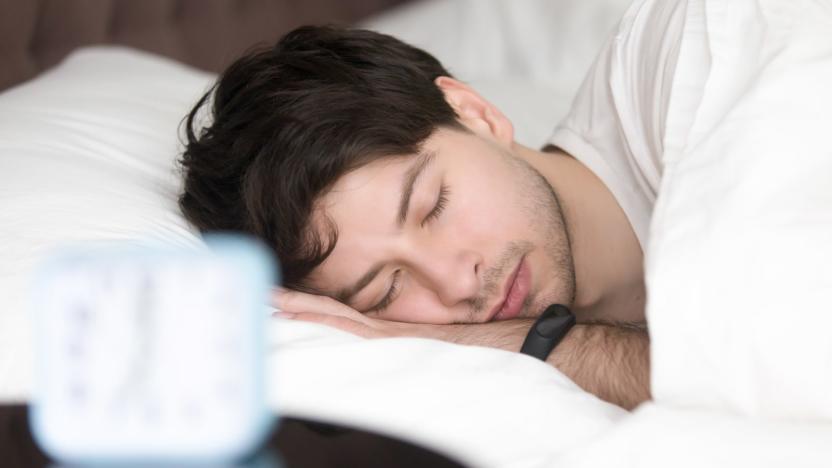
Your sleep tracker might make insomnia worse
Sleep tracking can help you determine if you're getting a good night's rest, but it might exacerbate your problems in some circumstances. Scientists talking to the New York Times have warned that sleep tracker apps and devices can worsen insomnia both through inaccurate data and by making your anxieties that much worse. In a study, for instance, it led to people both spending too much time in bed (to boost their sleep stats) and reporting non-existent conditions that resulted in wasted treatment.
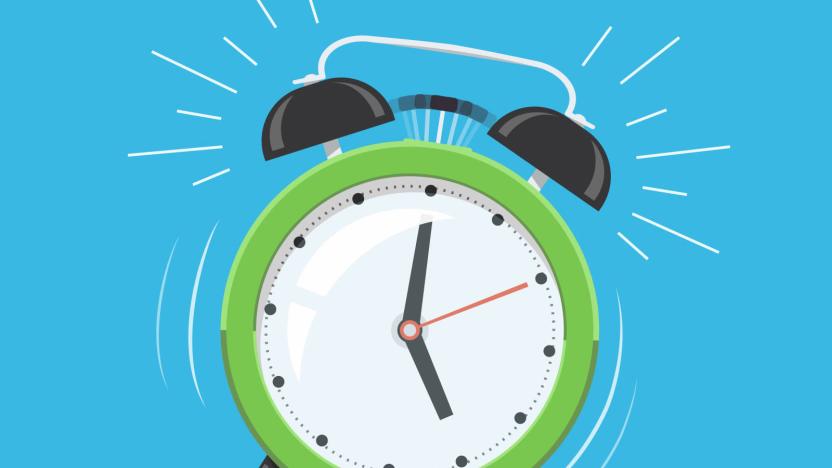
How tech does (and doesn't) help babies sleep
The truth is, technology probably does more to interrupt a child's sleep than help induce it Both exposure to screens and addictive routines can keep a kid awake. That said, certain gadgets, like a sleep clock, could help establish a healthy sleep cycle. READ ON: The dos and don'ts of helping your kid to sleep.
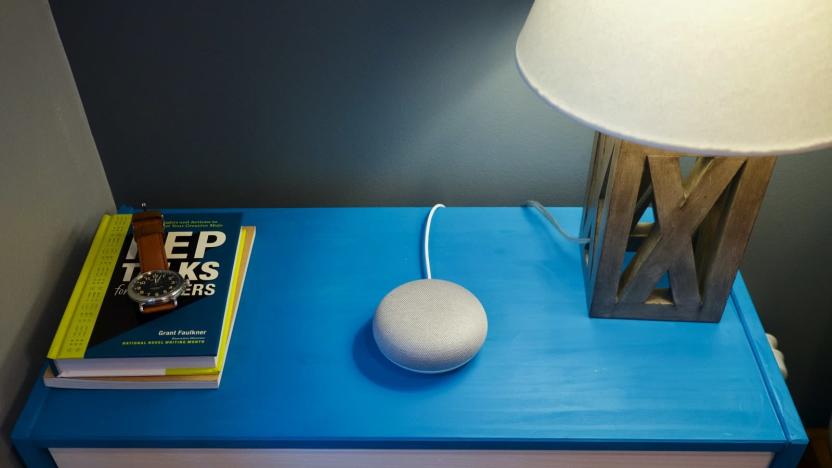
Google Home can gently wake you up using Philips Hue lights
Smart lights still tend to offer a rude awakening if you tie them to your alarm, but Google wants to fix that. It's delivering a promised Gentle Sleep & Wake feature for Home speakers that gradually dims or brightens your Philips Hue lights to provide a more natural rest. Say the right command (such as "turn on Gentle Wake Up," "wake up my lights" or "sleep my lights") and the lights will change over the course of half an hour. You can set specific times if you intend to use it as part of your daily routine.






